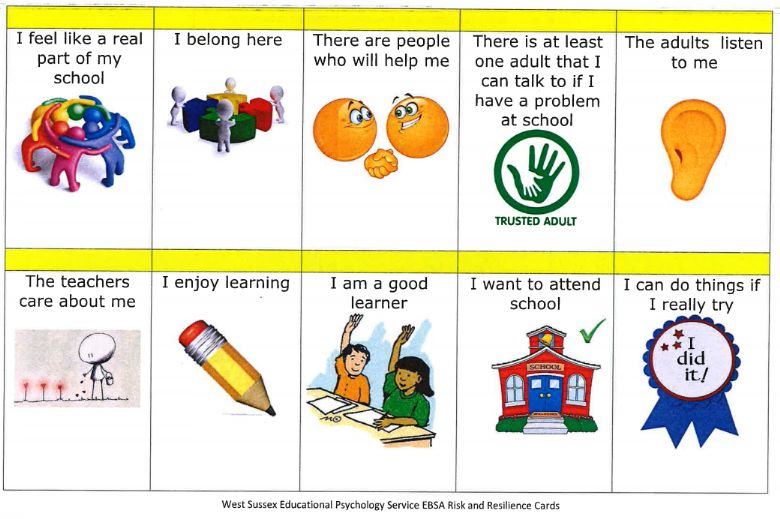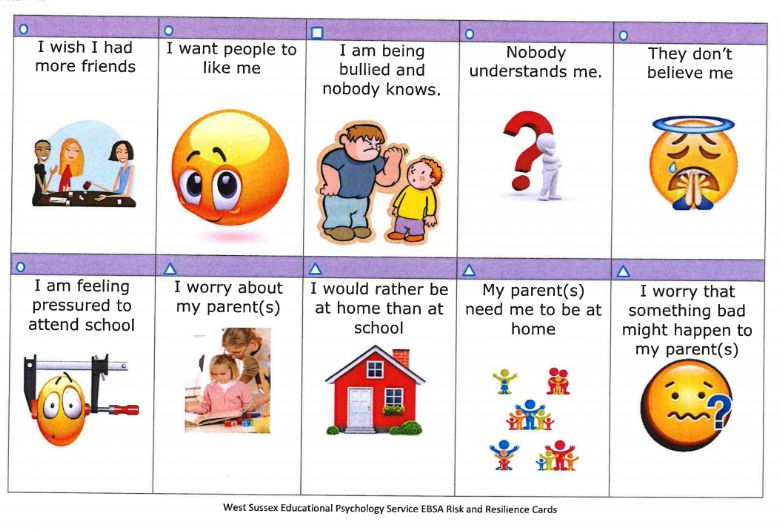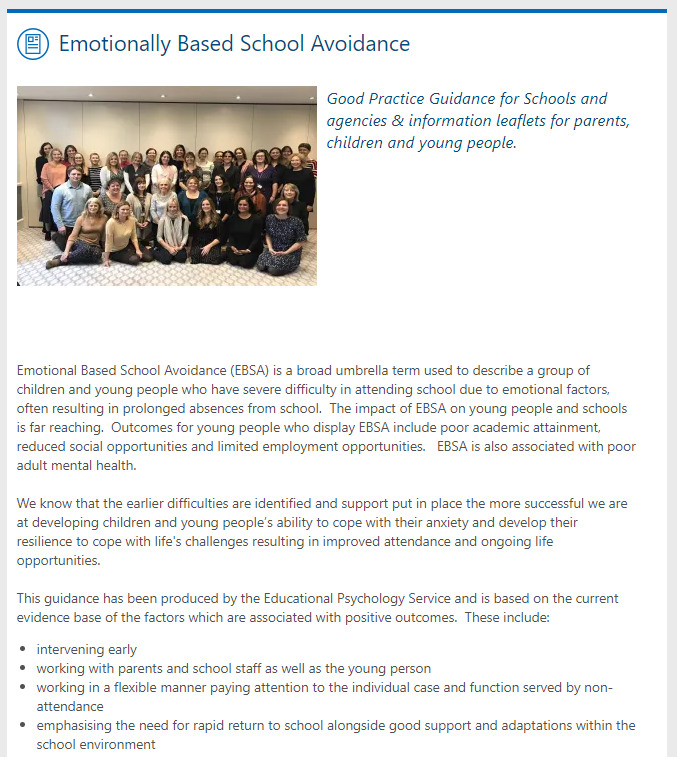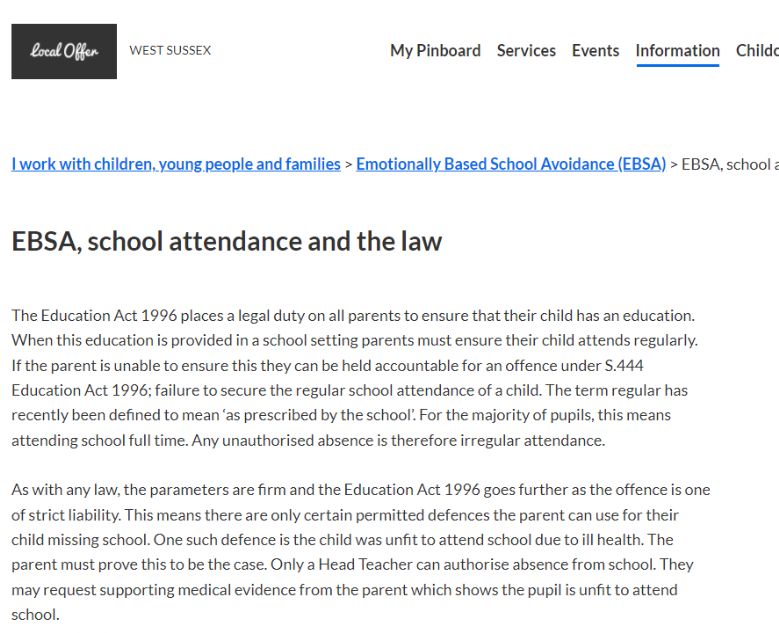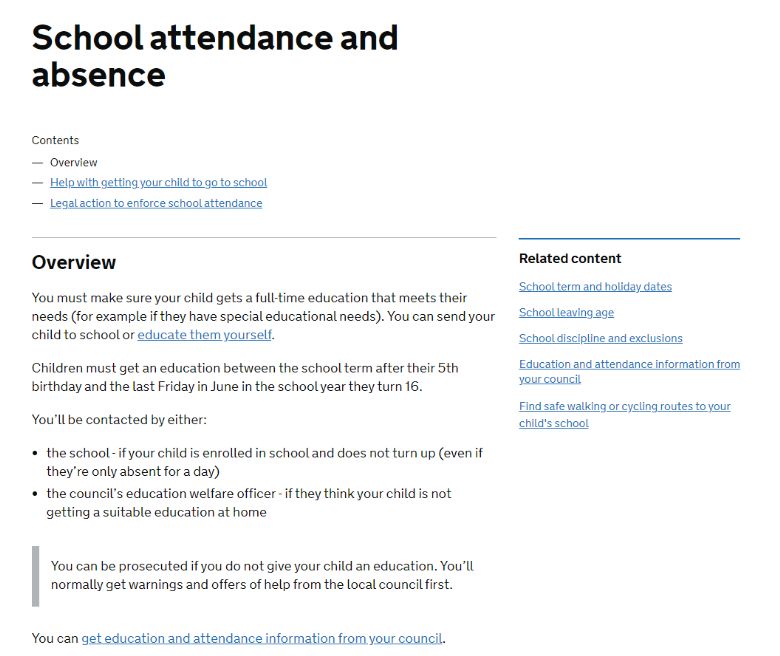Emotional Based School Avoidance
What is Emotionally Based School Avoidance?
West Sussex define EBSA (Emotionally Based School Avoidance) as the following:
Emotionally Based School Avoidance is a broad umbrella term used to describe a group of children and young people who have severe difficulty in attending school due to emotional factors, often resulting in prolonged absences from school. A clear distinction is made between those that are absent from school due to truanting and those that are absent from school due to the specific emotional distress that they experience around attending school.
Cause of EBSA
There is no single cause for EBSA and there are likely to be various contributing factors for why a young person may be finding it difficult to attend school. It is well recognised in the research literature that EBSA is often underpinned by a number of complex and interlinked factors, including the young person, the family and the school environment.
There tends to be four main reasons for school avoidance:
-
To avoid uncomfortable feelings brought on by attending school, such as feelings of anxiety or low mood.
-
To avoid situations that might be stressful, such as academic demands, social pressures and/or aspects of the school environment.
-
To reduce separation anxiety or to gain attention from significant others, such as parents or other family members.
-
To pursue tangible reinforces outside of school, such as going shopping or playing computer games during school time.
According to this model, the avoidance of uncomfortable feelings or situations described in the first two points could be viewed as negatively reinforcing the EBSA, whereas in the second two points, the EBSA could be seen as being positively reinforced by factors outside of school.
The resources on this page are selected to support children and families in overcoming EBSA. Leaders, teachers and the pastoral team at Chesswood will work closely with families to support good attendance, overcoming the emotional barriers they face.
Overview |
Link |
|---|---|
Risk and Resilience CardsWe use these cards in school which help us hear the child's voice so we can see what support is needed to support their anxieties Click on the image opposite or follow this LINK
|
|
West Sussex - Emotionally Based School AVoidanceClick on the image or follow this LINK for more infomation |
|
EBSA, school attendance and the lawEBSA Emotionally based school avoidance. The Education Act 1996 places a legal duty on all parents to ensure that their child has an education. When this education is provided in a school setting parents must ensure their child attends regularly. If the parent is unable to ensure this they can be held accountable for an offence under S.444 Education Act 1996; failure to secure the regular school attendance of a child. The term regular has recently been defined to mean ‘as prescribed by the school’. For the majority of pupils, this means attending school full time. Any unauthorised absence is therefore irregular attendance. For schools with young people experiencing EBSA and struggling with attendance, it is the Head Teacher’s decision whether to authorise absence or not. If a school decides to refer a student to Pupil Entitlement Investigations the expectation would be that the school will have tried an array of strategies to encourage and support the young person’s attendance such as those as outlined in this document as well as requesting any supporting information from medical professionals. Please click the image opposite for further information or follow this LINK. |
|
Parents "How Can I Support Good Attendance?"There is support if you are finding school attendance a problem. If your child is anxious or worried about going to school please do ask the school for help. Click on the image opposite or follow this LINK for further information
Attendance Top Tips:
|
|

